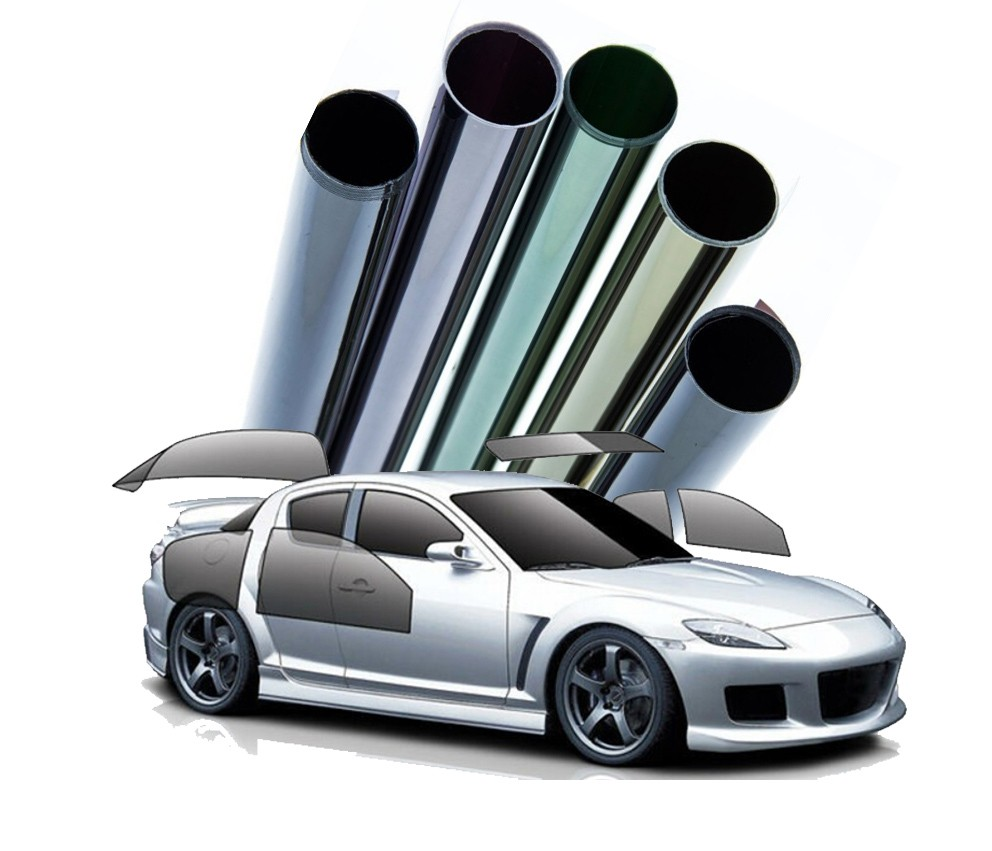Why Every Office Should Consider Commercial Window Tinting: Boost Comfort, Efficiency, and Aesthetics
2025-06-01
Why Every Office Should Consider Commercial Window Tinting
Understanding Commercial Window Tinting
Commercial window tinting involves applying a thin film to the interior or exterior of windows in office buildings. This film can reduce glare, block harmful UV rays, and improve energy efficiency. As businesses seek ways to enhance their working environments, window tinting has emerged as a popular solution.
The Benefits of Window Tinting for Offices
1. Enhanced Energy Efficiency
One of the most significant advantages of commercial window tinting is its ability to improve energy efficiency. Traditional windows can allow excessive heat to enter during the summer, making air conditioning systems work harder. By blocking up to 99% of harmful UV rays and reducing solar heat gain, window tinting helps maintain a comfortable temperature throughout the year.
2. Glare Reduction
Glare from the sun can be disruptive in an office setting, leading to decreased productivity and increased eye strain. Commercial window tinting significantly reduces glare, allowing employees to work comfortably on their computers and other digital devices. This creates a more pleasant work environment and can improve focus and efficiency.
3. Protection Against UV Rays
UV rays can cause skin damage and fade office furniture and decor. By installing window tinting, businesses can protect their employees and investments. The film acts as a barrier, blocking harmful UV radiation, thereby contributing to a healthier workplace and extending the lifespan of furniture and artwork.
4. Increased Privacy
Commercial window tinting can also enhance privacy for employees. Reflective or darker tints can prevent outsiders from seeing into the office, allowing employees to work without distractions. This added layer of privacy can also foster a sense of security, making employees feel more comfortable in their workspace.
5. Aesthetic Appeal
Beyond functionality, commercial window tinting can improve the aesthetic appeal of an office. Tinted windows can create a sleek, modern look that enhances the overall design of the building. This visual upgrade can impress clients and visitors, contributing to a positive image for the company.
Choosing the Right Window Tint for Your Office
1. Types of Window Tint Films
There are various types of window tint films available, each offering different benefits. Some popular options include:
- **Dyed Window Films**: These films absorb solar heat and reduce glare while providing a level of privacy.
- **Metalized Films**: These contain tiny metallic particles that reflect heat and UV rays, providing excellent energy efficiency.
- **Ceramic Films**: These offer high performance without the reflective appearance. They are suitable for buildings requiring a non-reflective tint.
2. Professional Installation vs. DIY
While it may be tempting to install window tinting yourself, professional installation is recommended for the best results. Trained technicians ensure that the film is applied correctly, avoiding bubbles and imperfections that can compromise the film's effectiveness. Additionally, professional installation typically comes with warranties, offering peace of mind for businesses.
Cost Considerations for Commercial Window Tinting
1. Initial Investment vs. Long-Term Savings
The initial cost of commercial window tinting can vary based on factors like the type of film, the number of windows, and the size of the office. However, businesses should consider window tinting as a long-term investment. The savings on energy bills can be significant, often paying for the installation within a few years.
2. Potential Tax Benefits
In some regions, businesses may qualify for tax incentives when investing in energy-efficient upgrades, including window tinting. It’s worth researching local regulations to determine if your office can benefit from such programs, potentially offsetting installation costs.
Common Misconceptions About Window Tinting
1. Window Tinting Makes Offices Dark
A common misconception is that window tinting will make an office too dark. In reality, many window films are designed to allow natural light in while reducing glare and UV rays. This balance ensures a bright and inviting workspace without the downsides of direct sunlight.
2. Window Tinting is Only for Hot Climates
While window tinting is particularly beneficial in sunny regions, offices in cooler climates can also reap its rewards. By insulating windows, tinting retains heat during the winter months, contributing to year-round energy savings.
Maintaining Your Tinted Windows
1. Cleaning Tips
To keep tinted windows looking their best, it’s essential to clean them properly. Use a gentle, non-abrasive cleaner and a soft cloth to avoid scratching the film. Regular maintenance will preserve the appearance and functionality of the tint.
2. Inspecting for Damage
Periodically inspect tinted windows for signs of damage, such as bubbling or peeling. Addressing any issues promptly can prevent more extensive damage and ensure that the tint continues to perform effectively.
FAQs About Commercial Window Tinting
1. How long does window tinting last?
Most quality window films can last anywhere from 10 to 20 years, depending on the type of film and environmental conditions.
2. Can window tinting be removed?
Yes, professional technicians can safely remove window tinting without damaging the glass.
3. Will window tinting affect my warranty?
Most window tints are designed not to void warranties, but it’s advisable to check with the window manufacturer before installation.
4. Is there a specific type of tint that is best for offices?
The best type of tint depends on your specific needs. Ceramic films offer great energy efficiency without a reflective appearance, making them ideal for office settings.
5. Can I install window tinting myself?
While DIY kits are available, professional installation is recommended to ensure the best results and avoid potential issues like bubbles or peeling.
Conclusion
In summary, commercial window tinting is a strategic investment for any office looking to enhance comfort, improve energy efficiency, and elevate its aesthetic appeal. With numerous benefits, including glare reduction, UV protection, and privacy, it stands as an essential consideration for modern workplaces. By choosing the right window film and ensuring professional installation, businesses can create a more pleasant and productive work environment while also enjoying significant long-term savings. Embrace the advantages of commercial window tinting and transform your office for the better.
How Vinyl Car Protection Film Can Enhance Your Car's Appearance
2025-07-27
How Vinyl Car Protection Film Can Enhance Your Car's Appearance
When it comes to maintaining and enhancing the appearance of your vehicle, vinyl car protection film offers an innovative solution that goes beyond traditional paint protection. This article delves into the various ways vinyl car protection film can elevate not only the look of your car but also its longevity and resale value. We will
Maximizing Your Vehicle's Style with Vinyl Wrap Sheets
2025-07-20
Vinyl wrap sheets for cars are an increasingly popular choice among automotive enthusiasts and professionals alike, offering a versatile and dynamic way to enhance the visual appeal of vehicles. These wraps allow for a wide range of customization options, enabling car owners to express their individual style without the permanence of traditional paint jobs.
One of the key advantages of using viny
Enhance Comfort in Your Ride with UV Blocking Window Film
2025-07-13
Enhance Comfort in Your Ride with UV Blocking Window Film
When it comes to enhancing the comfort of your ride, one of the most effective yet often overlooked solutions is the installation of UV blocking window film. This innovative product not only provides immediate comfort but also offers long-term benefits for both you and your vehicle. In this article, we will explore the numerous advantages o








